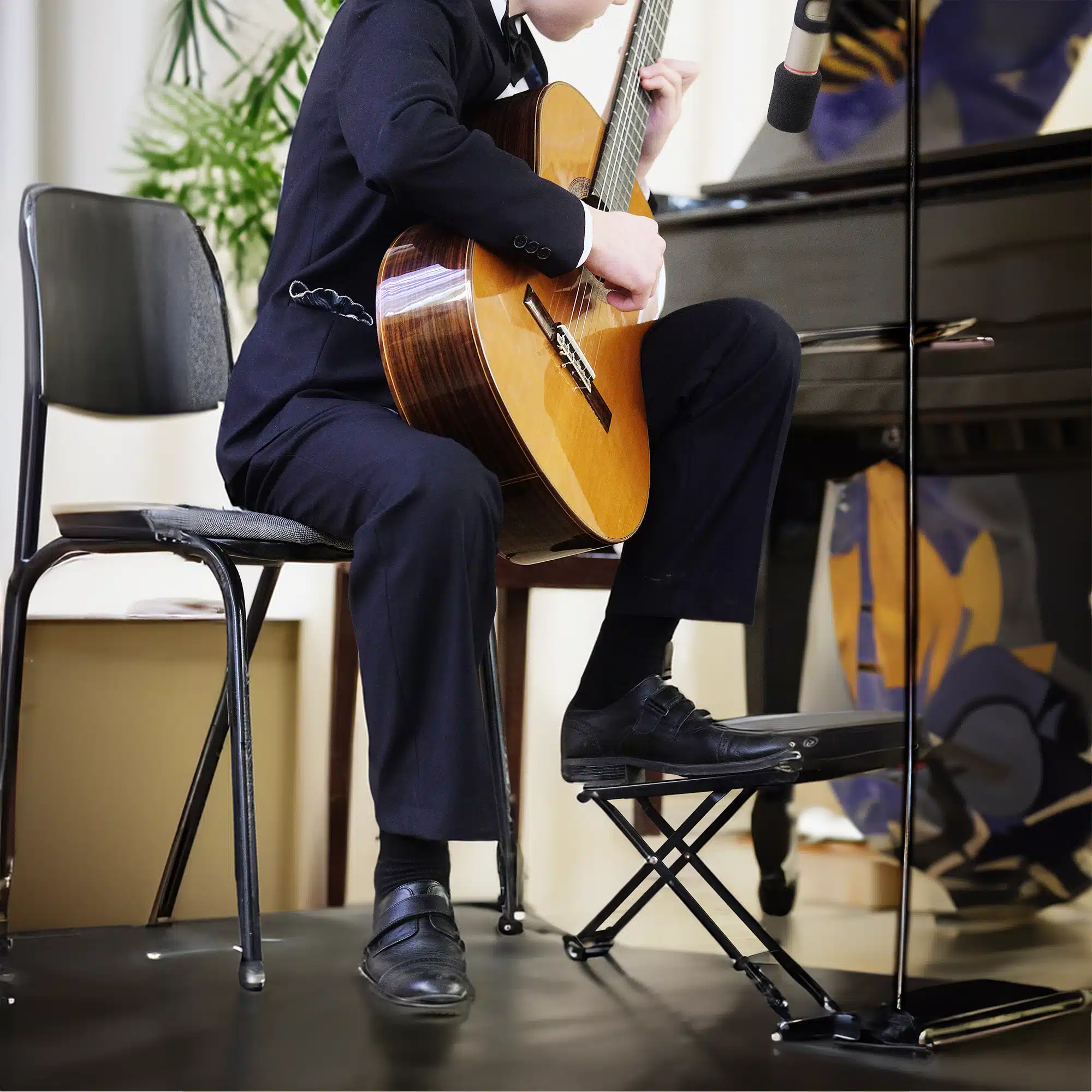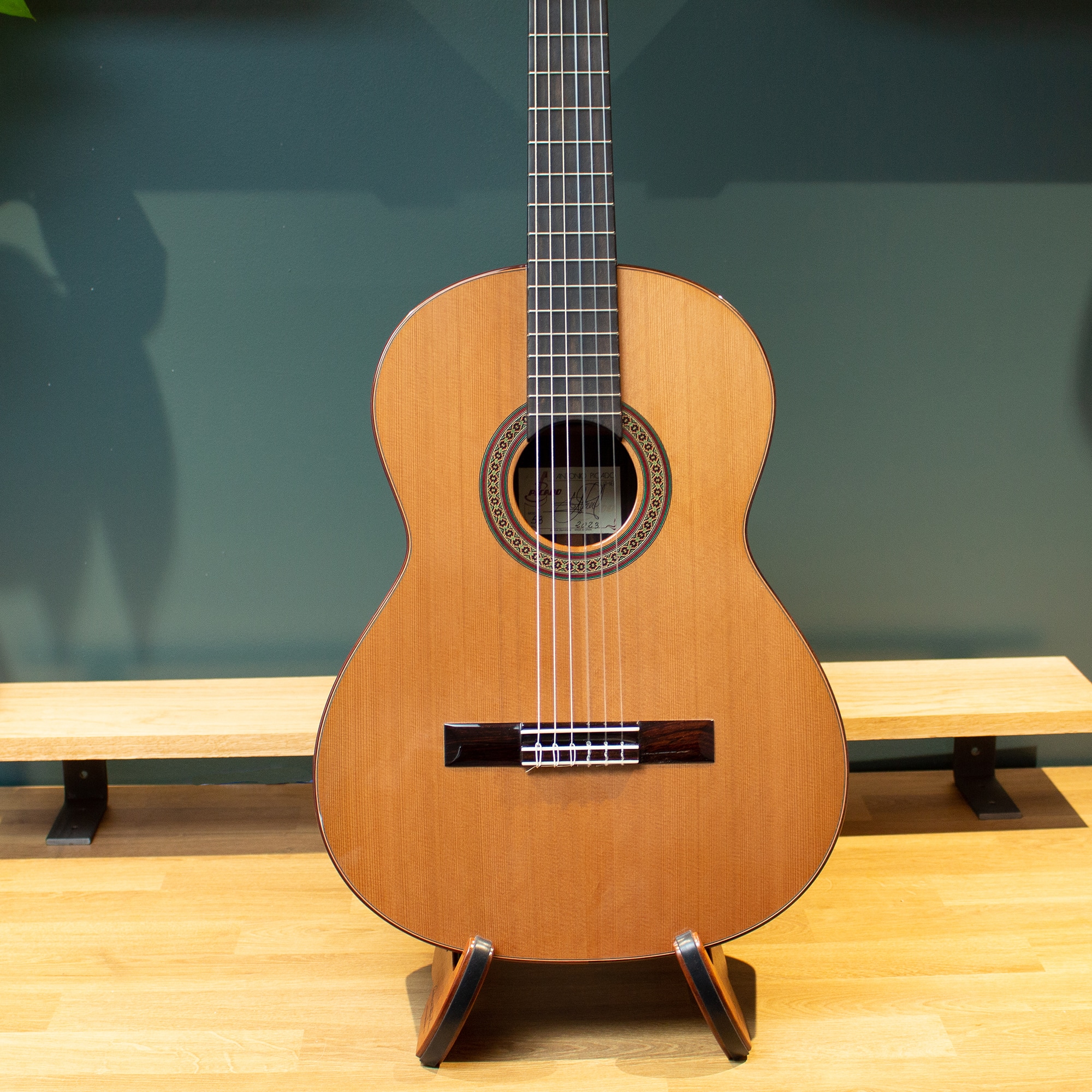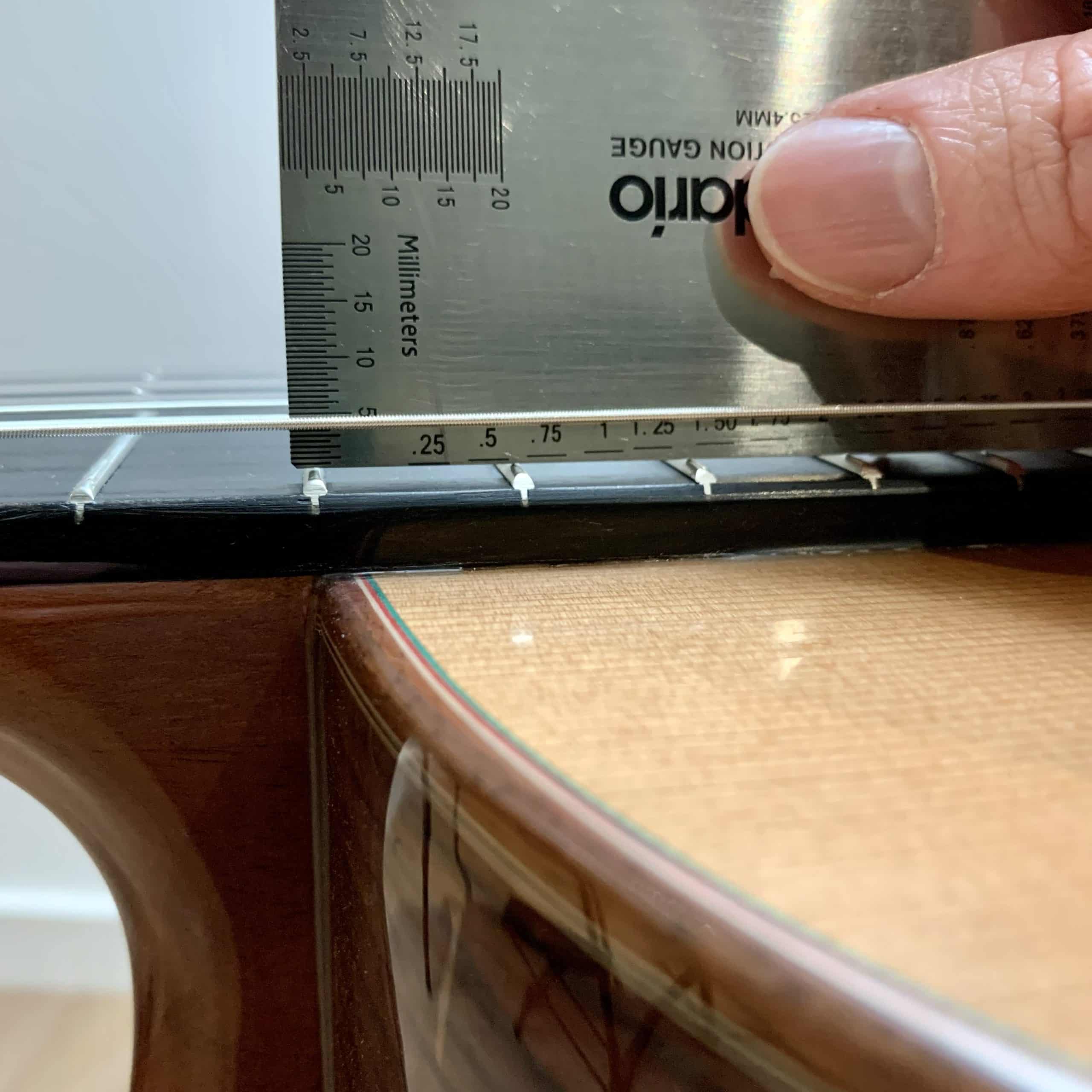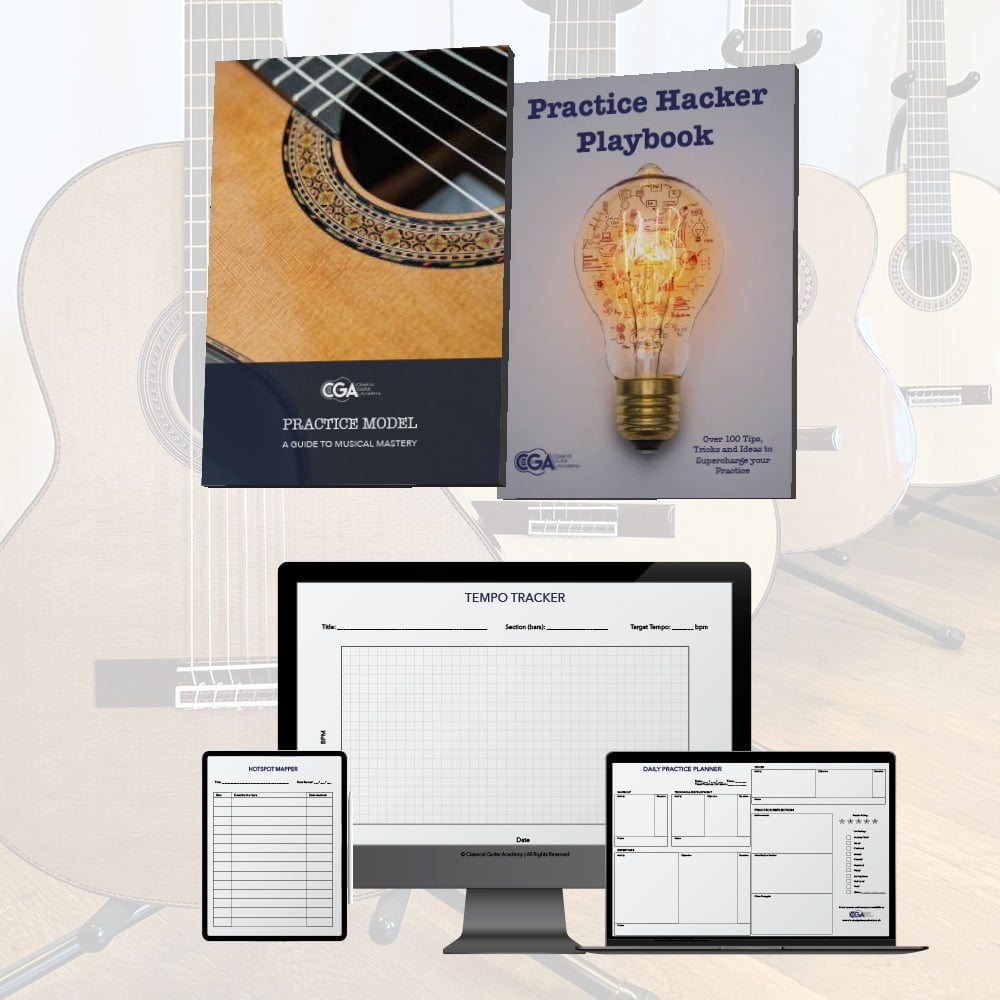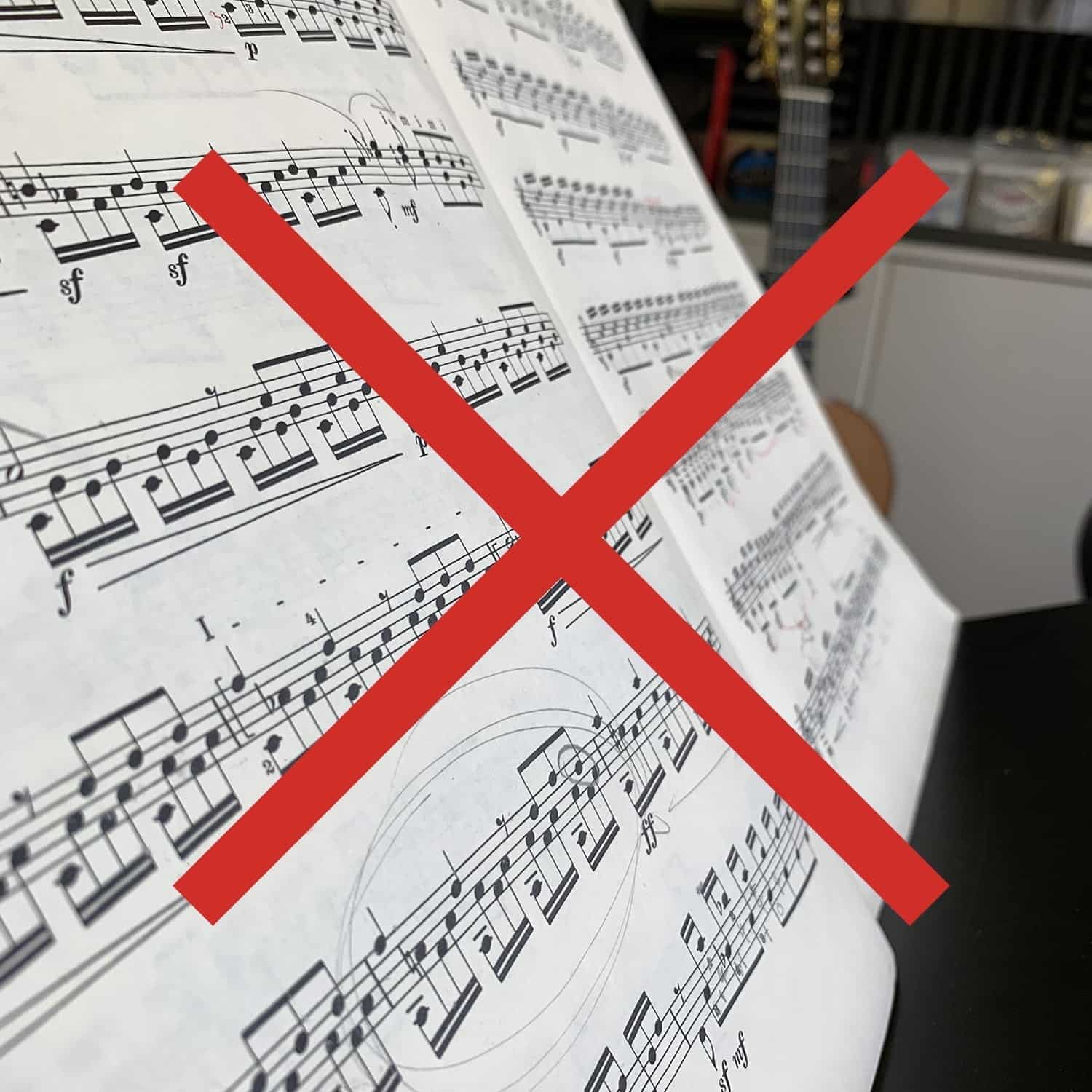When Not to Use a Metronome
A metronome is an essential piece of practice equipment. You should definitely own one and use it often.
However there are also times when you should turn the metronome off and practice without it. But when is the right time to practice with a metronome, and when should you practice without one?
It can be a hard one to get right if you’re relatively new to the guitar, or still trying to figure out the most effective practice routine.
Hopefully this short post will give you a few ideas about when it’s ok to practice without a metronome ticking away.
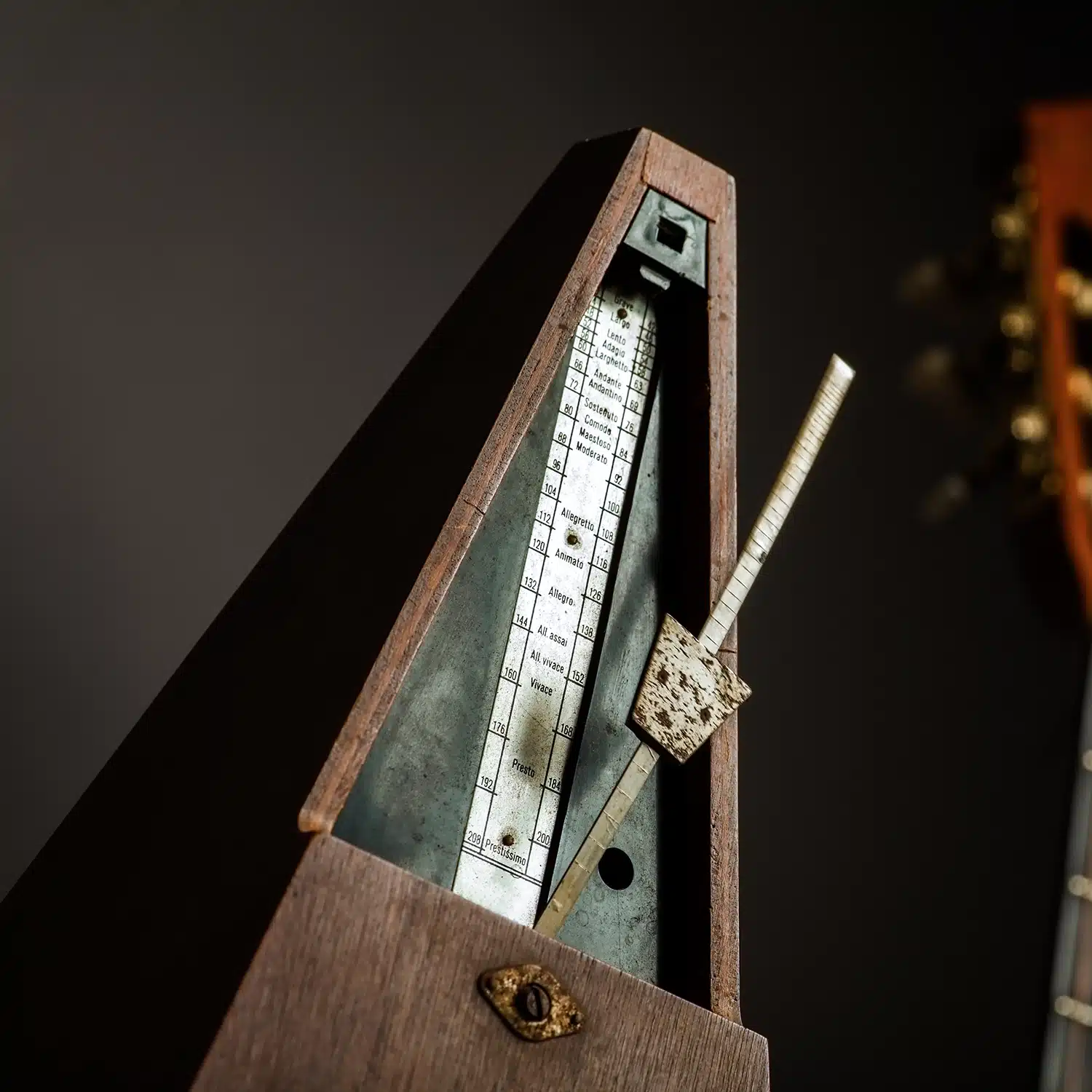
“But my teacher always says I should practice with a metronome”…
Always?
The metronome is great for certain tasks. A metronome is essential for tightening up your time keeping, or providing a steady beat to consolidate tricky rhythms. It’s also useful for speed work, such as gradually increasing the tempo in small increments or keeping you from playing too fast.
But there are definitely occasions when you’ll want to turn the metronome off.
First Look
If you’re practicing a piece of music for the very first time, you will probably want to stop, think, and go back a few bars often. You might want to start in the middle, or at the end. Maybe you’ve spotted a particularly interesting part and you just want to have a quick dabble before deciding how to tackle it properly.
Playing through a piece of music for the first time should not feel like a performance. It’s an exploration of the music. For this type of practice, having freedom of time is more important than nailing the rhythm at a set tempo from beginning to end. Having your metronome ticking away might actually do more bad than good.
There’s no denying that the metronome adds a certain time pressure. It’s what it’s designed to do!
If you’re sight reading or practicing something for the very first time, I’d strongly consider practicing without the metronome first.

Stumbling Blocks
Stumbling blocks, hotspots, tricky bits. Call them what you like, there’s going to come a point in your practice where you get a bit stuck.
At this point, it’s useful to have the freedom to stop, think and slow down at your own will. Having free time to play at your own pace whilst you work things out means you can do so without the pressure of the metronome pushing you on to play at a set tempo. You might even find that the tempo pressure pushes you into making a snap decision about how to play something, rather than one that has been carefully considered.
If you’ve hit a snag, try turning your metronome off whilst you work through it. Give yourself time and freedom to think. Pause often and let your brain do some heavy lifting without the pressure of the metronome.
Performing
Perhaps the most obvious time to play without a metronome is when performing.
Music should have a certain freedom to the way it feels. If we wanted to hear music that is always 100% metronomically correct we would just tap the notes into a computer and press play.
No, we prefer music that breathes both rhythmically and dynamically.
If you’ve reached the point where you feel ready to practice your performance, turn off you metronome. It’s served it’s purpose and it’s now time to really enjoy playing with a little less time pressure.
I’ve always found this to be much more exhilarating and fulfilling than managing a perfect take along with the metronome at a set tempo anyway!

Thinking Time
I don’t want to get into a deep dive answering the question “what is practice?” here. But if you’re practicing correctly, there should be a decent proportion spent in silence. That’s because there should be a significant proportion where you are actually ‘thinking’ about what to do, rather than just moving your fingers.
Silence is not a bad thing when it comes to practice. You’ll probably find turning the metronome off helps with your thought process too, as the relentless ticking can be a little invasive after a while!
Let Us Help You
Are you looking for a guitar lessons that can genuinely help you to improve your playing and achieve your goals?
Guitar tuition is the cornerstone of Classical Guitar Academy. It’s how we started and is an integral part of our mission here at CGA – to provide outstanding classical guitar tuition to everyone who would like to access it.
Book a lesson today and let us show you how we can enrich your guitar playing journey!



